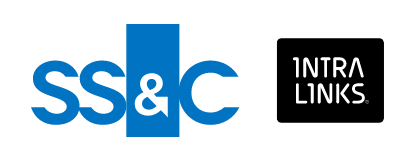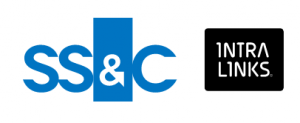The global virtual data room (VDR) market, valued at USD 2.37 billion in 2023, is on track to grow at an impressive CAGR of 21.2%, reaching USD 13.22 billion by 2032. This rapid expansion highlights the increasing reliance of enterprises on enterprise VDR solutions to manage sensitive data, ensure regulatory compliance, and secure large-scale transactions.
Traditional methods of document management and sharing files are no longer sufficient to address the security risks and inefficiencies faced by modern businesses. A secure VDR has become an essential tool, empowering organizations to protect their assets, streamline workflows, and meet legal compliance demands in an increasingly digital world.

The role of enterprise VDRs in compliance
For enterprise clients, compliance isn’t just about avoiding fines — it’s about building trust and demonstrating a commitment to ethical and secure file-sharing practices.
An enterprise virtual data room solution plays a key role in meeting and exceeding regulatory requirements by offering:
- Detailed audit trails: Every interaction within the data room is logged, creating an immutable record that can be presented during audits or critical transactions.
- Data residency controls: Enterprises can store sensitive document storage in secure locations and assign specific data access control permissions to ensure only authorized users handle confidential documents. This controlled access simplifies compliance with local data privacy laws, such as GDPR in Europe or HIPAA in the U.S.
- Access levels: With the ability to assign user roles and set granular control, enterprises ensure that only authorized individuals can view confidential documents.
- Automated compliance alerts: Advanced data-sharing software, powered by artificial intelligence, ensures enterprise data compliance standards are upheld without manual intervention.
By integrating secure storage and compliance-focused features, virtual data rooms reduce the risk of regulatory infractions while enhancing operational integrity.
| 🔎 Further reading: Explore the power of virtual data room integrations. |
Benefits of implementing an enterprise VDR
Implementing a cloud VDR isn’t just a short-term fix; it provides lasting benefits across all levels of the organization. This value is reflected in the growing adoption of VDRs, particularly among large enterprises, which accounted for more than 45% of the market share in 2023.
Let’s uncover the key benefits of adopting virtual data room solutions as compared to less advanced tools, such as Google Drive:
- Increased operational efficiency: Centralized document version control and scalable data management allow for streamlined workflows, ensuring efficient data management across teams.
- Scalable infrastructure: For managing large business VDR needs or other corporate VDR needs, large-scale enterprise solutions provide flexibility without compromising performance.
- Enhanced enterprise digital collaboration: Secure collaboration tools like dynamic watermarks, real-time annotations, and version tracking make working with global teams seamless and error-free.
- Risk mitigation: By offering secure digital storage and advanced security features, enterprises can safeguard sensitive data against breaches and ensure enterprise data security during high-stakes transactions.
Ideals

- Access controls
- Built-in viewer
- Full-text search
- Auto-indexing
- Customizable branding
- Advanced Q&A
- In-app live chat support 24/7
- 30-second chat response time
Dealroom

- Access controls
- Built-in viewer
- Full-text search
- Auto-indexing
- Customizable branding
- Advanced Q&A
- In-app live chat support 24/7
- 30-second chat response time
Citrix

- Access controls
- Built-in viewer
- Full-text search
- Auto-indexing
- Customizable branding
- Advanced Q&A
- In-app live chat support 24/7
- 30-second chat response time
Box

- Access controls
- Built-in viewer
- Full-text search
- Auto-indexing
- Customizable branding
- Advanced Q&A
- In-app live chat support 24/7
- 30-second chat response time
Intralinks

- Access controls
- Built-in viewer
- Full-text search
- Auto-indexing
- Customizable branding
- Advanced Q&A
- In-app live chat support 24/7
- 30-second chat response time
Key reasons for adopting a secure virtual data room
The growing adoption of VDRs across industries stems from their ability to address pressing enterprise needs, from enhancing security to optimizing workflows and managing multiple projects.
Here are the main reasons enterprises make virtual data rooms their top choice.
1. Enhanced document security
Sensitive data breaches and unauthorized access can cripple a business. For enterprises handling confidential information, security is a top priority. A robust enterprise VDR solution addresses this with:
- Encryption: Files are encrypted both in transit and at rest using AES-256, ensuring data remains unreadable.
- Granular access controls: Administrators can define user permissions to determine who can view or download confidential documents.
- Multi-factor authentication: Adds an extra layer of protection to prevent unauthorized access to files.
- Fence view: A feature that blurs out parts of documents to ensure secure information sharing while keeping sensitive sections private.
2. Streamlined due diligence processes
Enterprise VDRs are indispensable during due diligence processes for mergers, acquisitions, or fundraising. They streamline the process by enabling:
- Controlled document sharing: Stakeholders can securely share documents without risking exposure.
- Real-time tracking of user activity: Administrators can monitor who accessed which files, how long they engaged, and what actions they took.
- Simplified collaboration: Built-in messaging tools eliminate reliance on unsecured platforms like Google Drive.
- Cost-effective solutions: By digitizing diligence processes, enterprises save time and avoid the extra costs associated with physical data rooms.
3. Compliance and regulatory requirements
Meeting legal compliance standards like GDPR or HIPAA is crucial in industries like life sciences, finance, and healthcare. A virtual data room helps:
- Maintain complete control over sensitive information during audits.
- Provide regulators with data audit trails to verify legal documents and secure transactions.
- Ensure secure large-scale file management across global teams while complying with local regulations.
4. Global collaboration and remote work
Distributed teams benefit from intuitive interfaces that support secure access to files anywhere. Key advantages include:
- Real-time collaboration features: Multiple users can work on the same documents simultaneously with no risk of version conflicts.
- Secure data sharing: Reduces reliance on unsecured email exchanges.
- Custom workflows: Tailored features to suit specific project management needs.
5. Advanced analytics and insights
Modern enterprise VDRs offer sophisticated analytics, such as:
- Optical character recognition (OCR): Speeds up searches within scanned documents.
- User activity tracking: Helps administrators identify bottlenecks and focus on critical transactions.
- Deal lifecycle insights: Analytics reveal patterns to optimize future processes.
6. Cost-effective document management
Traditional physical data rooms are costly, requiring expenditures on printing, storage, and transportation. Enterprise VDR solutions offer significant savings:
- Reduced physical storage costs: Digitized documents eliminate the need for physical storage facilities and associated maintenance expenses.
- Lower administrative overhead: Automated features like bulk uploading, indexing, and document search reduce manual labor requirements.
- Scalability: As businesses grow, VDRs can accommodate increasing volumes of data without significant additional costs.
- Transparent pricing models: Providers like iDeals offer flat-rate pricing, ensuring predictable costs without the hidden fees associated with per-page models.
These savings make VDRs a smart investment for enterprises focused on cost efficiency without compromising quality.
How virtual data rooms can accelerate project timelines
Time is a critical asset in enterprise operations, particularly during high-pressure projects like M&A or IPOs. Enterprise VDRs accelerate timelines by:
- Eliminating bottlenecks: With instant and centralized document access and advanced search functionality, teams can locate and share critical files without delay.
- Facilitating decision-making: Secure platforms ensure that executives and advisors can review and approve documents quickly, even from remote locations.
- Improving communication: Built-in tools for annotations and Q&A streamline discussions, reducing the need for back-and-forth emails.
- Automating routine tasks: Features like bulk uploading, indexing, and permission assignment save hours of administrative work.
This efficiency translates into faster project completions, enabling enterprises to stay competitive and responsive in dynamic markets.
🔎 Further reading: Find out more about the importance of user training in VDRs.
Enterprise pricing plans from top VDR providers
Selecting the right virtual data room (VDR) solution involves balancing robust functionality with cost-effectiveness. Enterprise clients typically encounter three primary pricing models offered by leading VDR providers, each tailored to different business needs.
Common pricing models for VDR solutions
- Per-page pricing. This model charges based on the number of pages uploaded or accessed within the VDR. While initially attractive for small-scale projects, it quickly becomes prohibitively expensive for enterprises. Here are the main pitfalls of per-page VDR pricing:
- Costs are unpredictable, especially during long-term projects.
- Enterprises may face high expenses for file-heavy transactions, such as M&A deals.
- Tracking page counts can be cumbersome, adding administrative overhead.
- Flat-rate (unlimited data) pricing. Flat-rate plans provide unlimited data storage and access for a predictable monthly or annual fee. This model is better suited for enterprises managing high document volumes and diverse teams, and here’s why:
- Transparent and predictable costs, ideal for budget planning.
- Eliminates worries about exceeding page limits or facing surprise fees.
- Scales easily with growing data demands.
- Customized enterprise plans. Some providers, like Ideals, offer tailored plans for enterprises, allowing businesses to select features and pricing tiers that align with their unique operational requirements:
- Tailored solutions meet specific needs, such as compliance features or advanced analytics.
- Pricing is transparent and based on usage, offering better value for large-scale deployments.
Selecting a secure VDR requires balancing robust tools with cost-effectiveness. Here’s how leading companies compare:
| Provider | Pricing model | Key features | Limitations |
| Ideals | Flat-rate/customized | 🔸 Unlimited data 🔸 24/7 support 🔸 Advanced integration | Requires upfront customization |
| DocSend | Per-user pricing | 🔸 Basic security 🔸 Sharing files | Limited enterprise features |
| Merrill Datasite | Per-project pricing | 🔸 Compliance-focused 🔸 Industry-specific tools | Expensive for long-term use |
| Intralinks | Per-page pricing | 🔸 Secure storage 🔸 Compliance tools | High costs for document-heavy projects |
| ShareVault | Tiered flat-rate plans | 🔸 Secure access 🔸 Tracking tools | Limited advanced analytics |
Unlike other providers, Ideals offers unmatched transparency and scalability with virtual data room solutions tailored for enterprise VDR pricing. Some additional differentiators of Ideals include:
- Complete control with advanced security features like multi-factor authentication and granular user permissions.
- Unlimited secure data sharing with no hidden fees.
- Customizable workflows to meet business needs during critical transactions.
- Reliable cloud storage for sensitive documents, backed by 24/7 support.
Enterprises managing high volumes of sensitive data, navigating complex compliance landscapes, or collaborating with global legal teams will find Ideals’ pricing and features well-aligned with their needs. Its focus on transparency, security, and scalability makes it the preferred choice for organizations looking to optimize their data management strategies.
Get a clear breakdown of enterprise file-sharing solutions to help you pick the right secure sharing approach.
Conclusion
Adopting a secure VDR isn’t just about storing documents — it’s about mitigating risks, ensuring compliance, and driving efficiency. For enterprises managing sensitive information and navigating complex deal lifecycles, solutions like Ideals’ virtual data room VDR set the standard for excellence.For more VDR options and data-driven comparison, explore our home page, where we review and compare some of the best virtual data room providers in the market.

